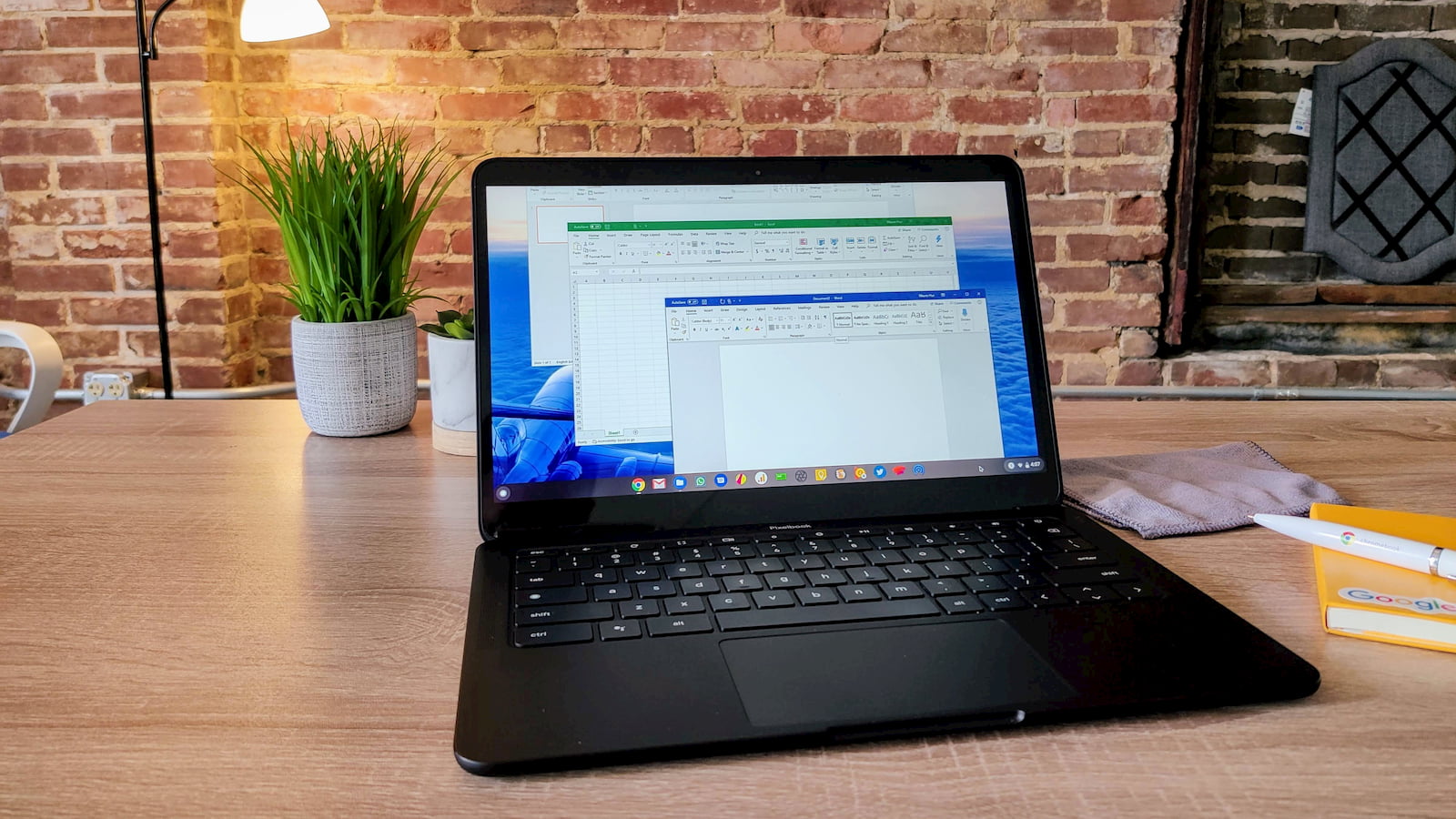
The day is finally here when one of the last reasons not to switch to Chrome OS might finally be eroding. Since the beginning of Chrome OS as an operating system and the start of the Chromebook movement from Google, one of the most oft-asked questions from potential users is, “Can I run Microsoft Office on it?”
And, to be fair, that question carries a lot of legitimacy. After all, in the past decade that Chromebooks have been a thing, the people buying them were people who grew up using Windows software and the hardware that ran it. People like myself who, after being completely inundated with Windows for my entire childhood, needed some stop-gaps to make the move to Chrome OS as a full-time replacement for Windows. People like me asked the question and continue to ask the question: can it run “x”?
Over the course of this decade as Chrome OS has evolved, new ways to tackle old tasks have emerged and some of those same people have now realized that their old ways of getting work done are just that. Old. Stale. Antiquated. And those ways were in need of a shake-up that Chromebooks provided. For me, that meant leaning on new tools to do tasks and finding faster, leaner, and more modern methods of getting my job completed. For users like myself, the exploration was almost an adventure and the transition was invigorating and fun.
Others, however, aren’t so keen on change, and so the question still lingers for them. Every time a new, affordable, long-lasting, fast-booting, attractive Chromebook launches, they ask the question once again in hopes that there will be a different answer. For those people, finding alternatives isn’t attractive and in some cases, not even an option. They need the legacy software, yet they want a Chromebook. For them, the transition to Chrome OS has never started simply because it can’t.
Things are changing
A change is on the wind, however, and it looks like the first legitimate, collaborative effort to bring classic Windows applications to Chromebooks is underway, and Google has made it completely official. Parallels is partnering with Google to bring Windows applications over to Chrome OS. For those of you not aware, Parallels has existed for many years as the stop-gap provider of Windows applications for Macbooks. It has been and continues to be one of the easiest ways for people to bridge the divide between Windows and MacOS as they transition over.
For businesses, this is an even more massive win. With the ease of deployment of Chromebooks across a workforce, many companies have desired to get into the Chromebook game, but are held back from making the move simply because of a handful of Windows applications that they either cannot afford to leave or simply don’t have a desire to. For these companies, the desire to more easily manage a fleet of Chromebooks may be strong, but legacy applications keep them from making the leap.
Parallels will eradicate this wall. While the details are a bit scant right now, the fact that Google has already officially mentioned the project and Parallels has put out a press release tells us that this isn’t some last-minute concoction: this has been planned for a bit. The companies are aiming for a fall release of the tech and, from the looks of it, will aim the end result at Chrome Enterprise.
This may mean that a G Suite subscription may be necessary to fully leverage these new, upcoming Chromebook abilities, but those details have not been shared at this point. To be honest, while I feel like this will definitely roll out via G Suite first, I cannot imagine a scenario where Google chooses not to bring this entire effort over to the consumer side of things. Imagine the growth rate of Chromebooks when the answer to that question – “Can it run Microsoft Office?” – is simply answered with, “Of course!”
At that point, you have Chrome OS capable of delivering apps in the form of web apps, PWAs, Chrome apps, Chrome extensions, Android apps, Linux app, and now Windows apps. I think the label of ‘just a browser’ might have to finally, and thankfully, be permanently sidelined at this point. Chrome OS and the Chromebooks that run it are about to step into a new season of interoperability, and we cannot wait to see how it all plays out. We’ll obviously know more as this begins to roll out, but I am legitimately excited by this news. Though I have little desire to run many Windows applications on my Chromebook, I know they are the key to bringing tons of new users on board to experience the awesomeness that is lightweight, cloud-based computing with Chrome OS. If it takes a few Windows apps to get them here, then so be it.
Shop All The Latest Chromebook Deals
https://news.google.com/__i/rss/rd/articles/CBMiTmh0dHBzOi8vY2hyb21ldW5ib3hlZC5jb20vZ29vZ2xlLXBhcmFsbGVscy13aW5kb3dzLWFwcHMtY2hyb21lLW9zLWNocm9tZWJvb2tzL9IBUmh0dHBzOi8vY2hyb21ldW5ib3hlZC5jb20vZ29vZ2xlLXBhcmFsbGVscy13aW5kb3dzLWFwcHMtY2hyb21lLW9zLWNocm9tZWJvb2tzLz9hbXA?oc=5
2020-06-16 20:19:03Z
52780857695409
Tidak ada komentar:
Posting Komentar